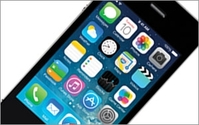Apple is asking a federal judge to slam the courthouse door shut on a group of consumers who are suing the company for allegedly misrepresenting its security practices
The consumers'
lawsuit stems from revelations in 2012 that some developers accessed users' address books without their knowledge. The users, who also are suing 15 developers, allege that Apple mislead users about
the security of their information.
They allege that Apple's privacy policies, blog posts, ad campaigns and other corporate statements “created the false impression” that iPhones
and iPads would keep personal data secure.
“Apple had unique knowledge that its iDevices were not as secure as represented, but consistently and deliberately failed to reveal its
products’ security flaws to consumers,” the consumers allege.
Earlier this year, U.S. District Court Judge Jon Tigar in the Northern District of California dismissed the lawsuit
against Apple, but said the users could amend their complaint and refile it. They did so in late June.
Apple now says in court papers filed late Friday that the most recent complaint also
should be dismissed -- this time with prejudice.
The company raises numerous arguments, including that its privacy policy warns users that app developers might gather data about their
contacts. “Plaintiffs complain that Apple failed to disclose that applications could collect data in user address books,” Apple says. “But Apple’s privacy policy ... discloses
that third-party apps may collect information such as contact and location data from their devices.”
Apple also argues that none of the consumers pinpointed the allegedly false
statements they relied upon when purchasing their devices.
“No named plaintiff alleges that he or she relied on, or even saw, any specific actionable statement by Apple,” the
company says. “It is also undisputed that Apple disclosed, in its privacy policy (where consumers would naturally look for privacy-related information), the very information that
Plaintiffs’ claim was omitted, i.e., that apps can collect device address book data.”
The dispute dates to March of 2012, when Texas resident Marc Opperman and a group of other
smartphone users brought a potential class-action lawsuit against Apple and app developers. The litigation stemmed from a series of reports detailing privacy glitches.
The first report came in
early 2012 from developer Arun Thampi, who blogged that the social network Path collected users' contacts without informing them. The Federal Trade Commission later accused Path of deceiving
users by uploading their address books. Last year, Path settled the charges by agreeing to create a comprehensive privacy policy.
Soon after reports about Path surfaced, a different
developer reported that the mobile app Hipster downloaded users' contacts without their permission. Within weeks, reports emerged that other mobile companies, including Twitter, Yelp, and
Foodspotting, downloaded and stored users' address books. In many of those cases, the developers reportedly asked users for permission to access their contacts, but didn't specify that the data
would be stored.
The app developers have filed separate motions asking Tigar to dismiss the lawsuit.
